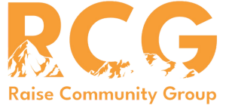Projects
Past Projects & Voices
“What RUN is doing has brought more long-term positive impact than large-scale projects like UNICEF and Save the Children in our community.” – Bugiri District CDO 3
Every program we develop centers around a specific aspect of a the community's weakness and leverages the community's strengths to address it, whether it be nutrition, clean water and energy, hygiene, or education.
Over the years, we witnessed solar-powered lights bringing young boys and girls together for an extra hour of reading after sunset. We also listened to the sighs of relief as families were cured of water-borne illnesses after we introduced affordable water filters. We even saw how parents from distant towns would attend our talks and revaluated their stance on corporal punishment in favor of alternative teaching and engagement methods.
Whether in evaluating past projects or entertaining new ones, we start by listening to the the needs of the community and how they are being addressed. These are often as varied as they are challenging. Nevertheless, through malaria and COVID-19, we find a way to effect the desired impact.
Ongoing Projects
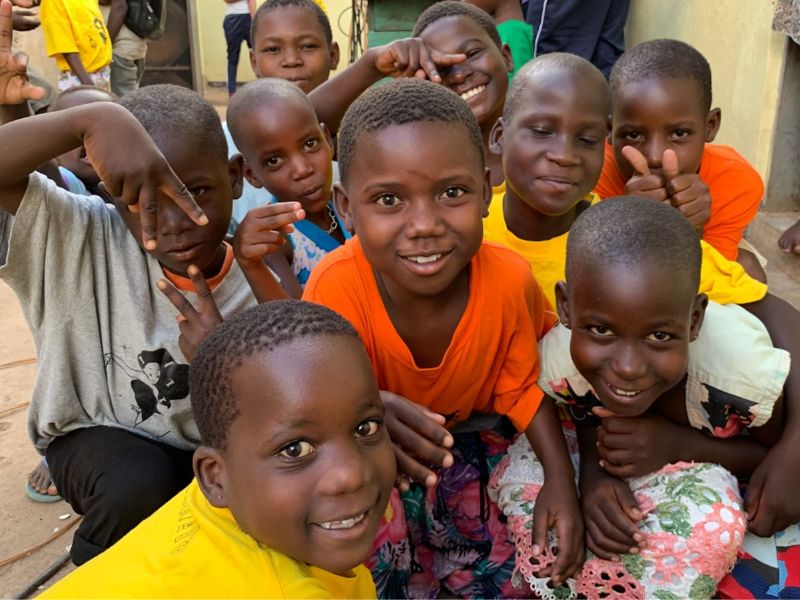
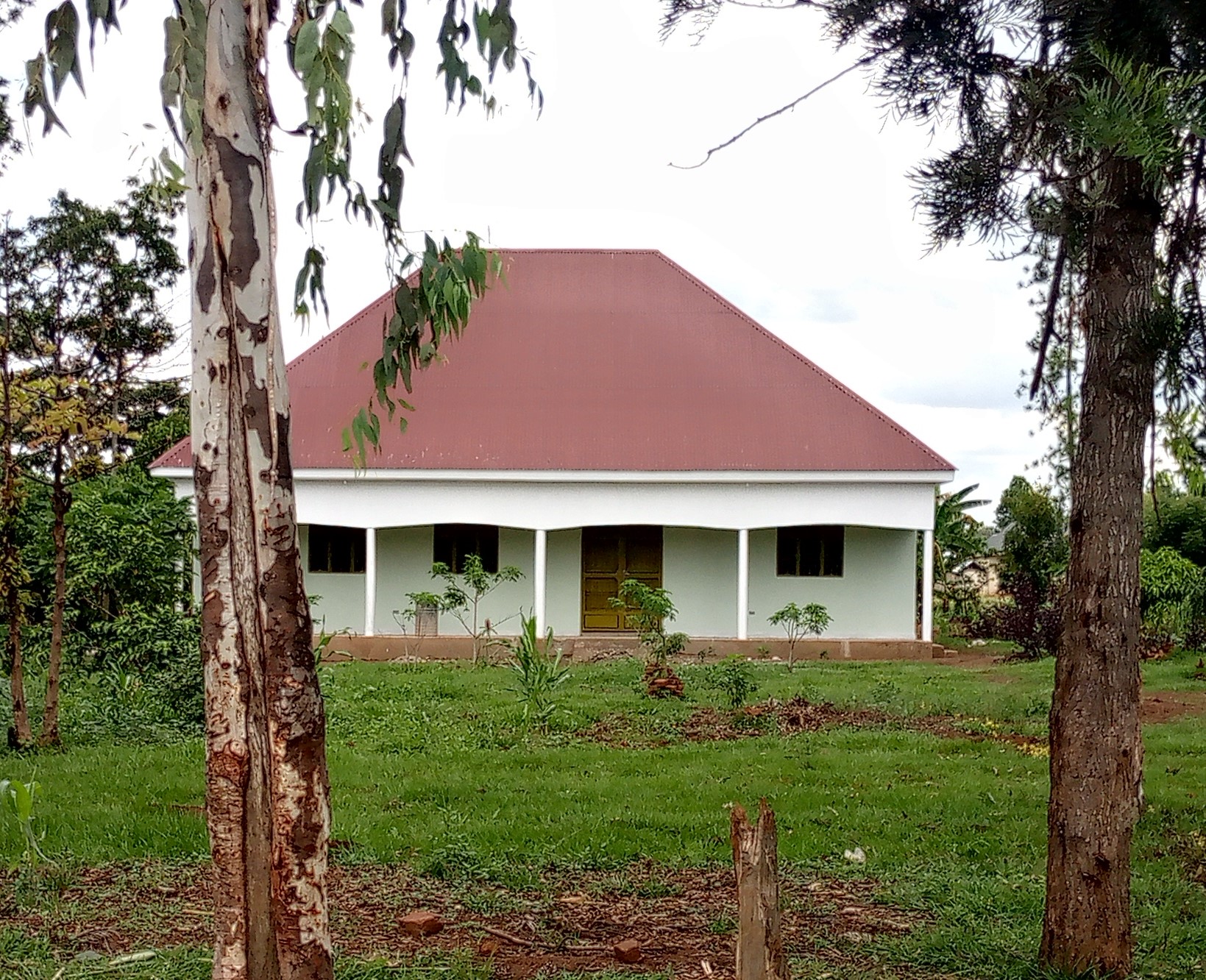
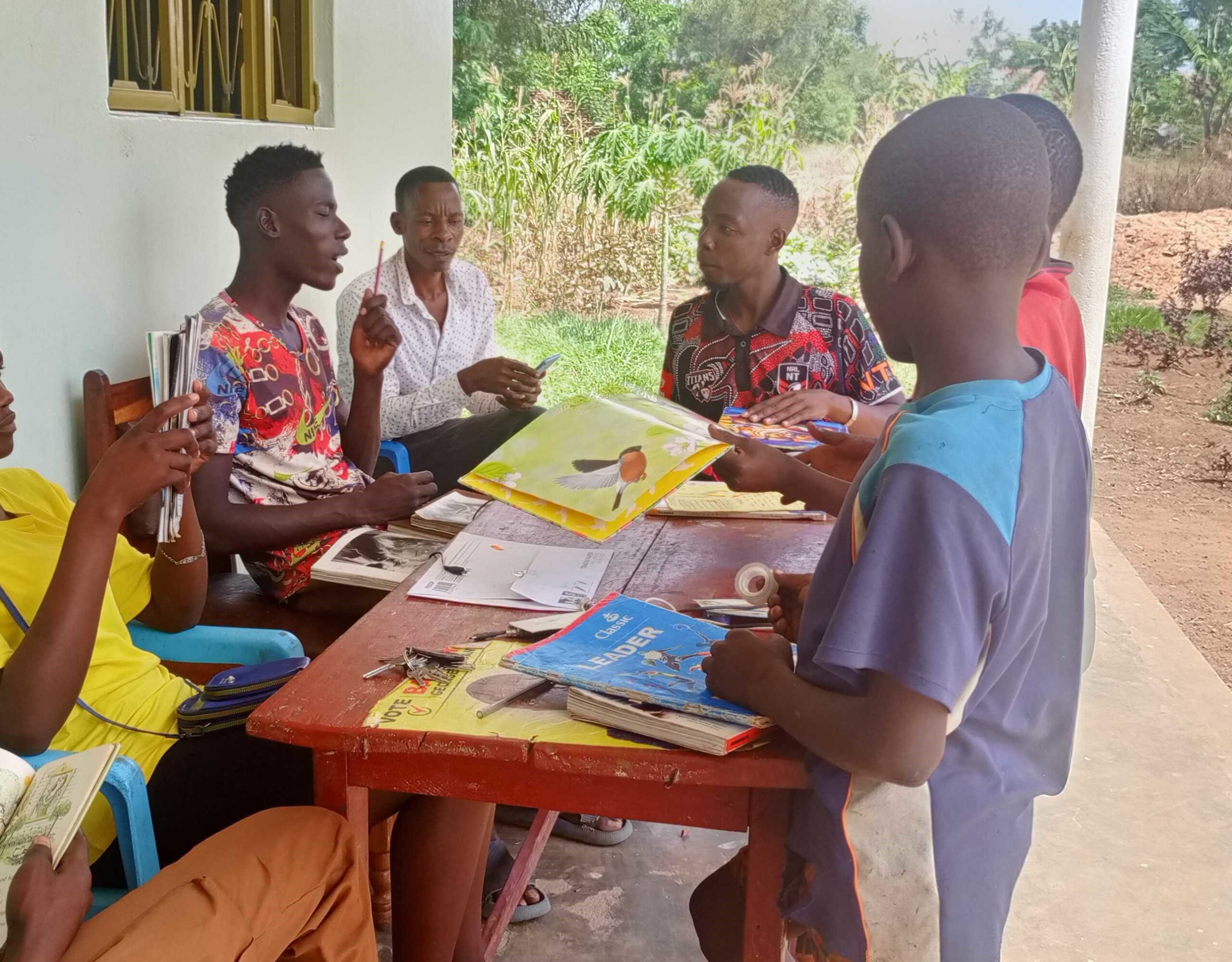
RUN Community Center
The RUN Community Center is the largest initiative RCG has undertaken.The center, completed in early 2025, addresses the diverse needs of local communities by serving as a public library, after-school center, wellness center, and more. Our hope is that this multi-unit campus will sustainably grow and develop as a central hub that will be the home base for our projects and empower the community we work with for generations to come.
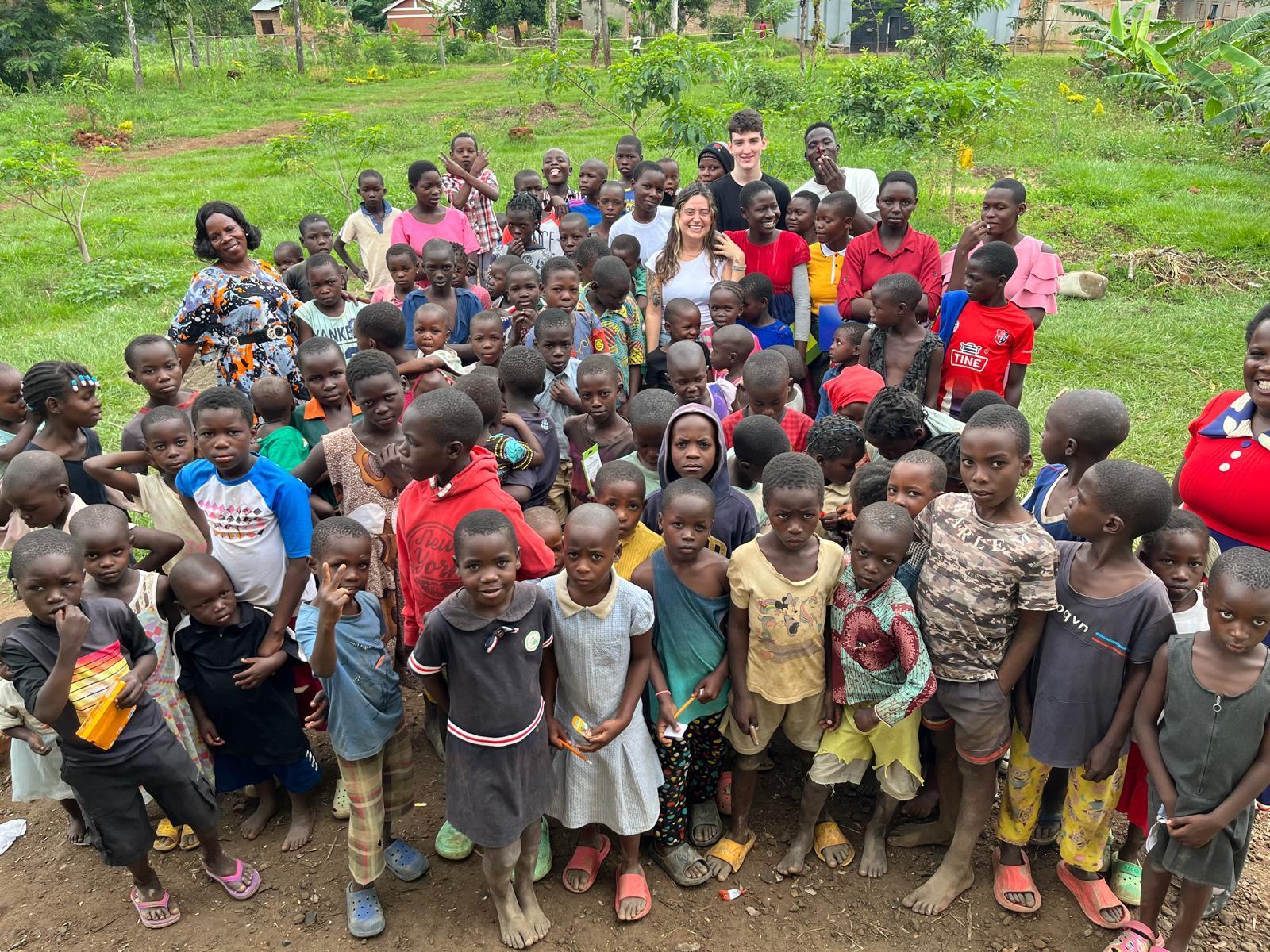
Community Fundraising
The high school intern team is currently working in collaboration with local businesses and chains like Chipotle, Panera, etc. from their own communities to host fundraisers . The goal of these fundraisers is to spread the message of RCG alongside raising funds for furniture, tablets, and menstrual health kits for the community center in Bugiri, Uganda. We plan to promote the fundraiser in our schools and communities, as well as online (on Instagram and/or TikTok) to ensure it is successful. The college chapter is currently raising funds to raise money for the AfriPads to support the Wellness Booth initiative.
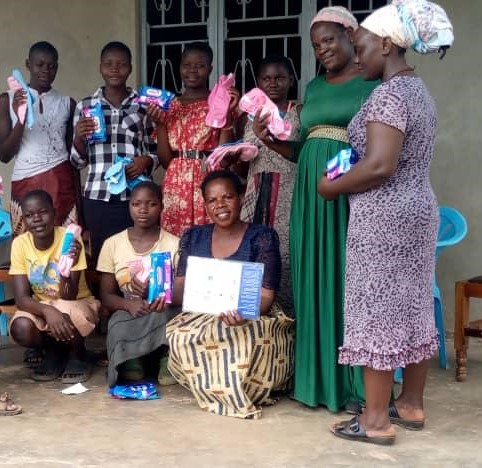
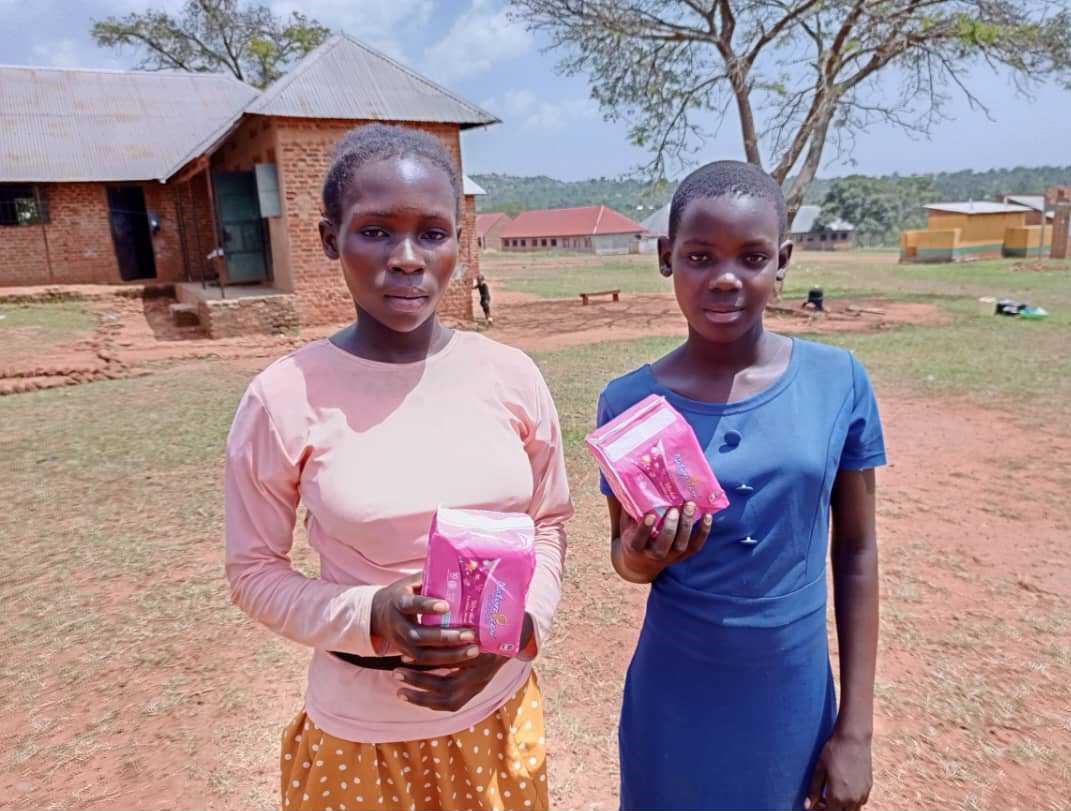
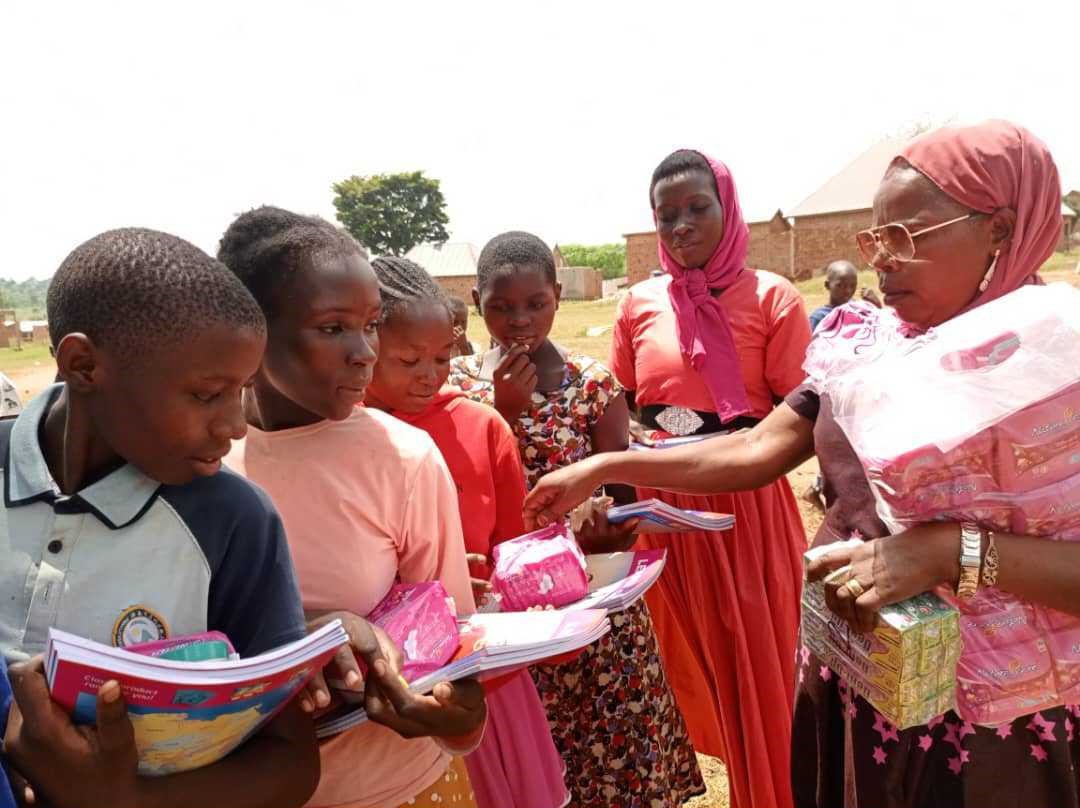
Current Health Intiatives
The Wellness Booth is a project that collects donations of basic sanitation and preventive medicine products, to be made available in the center for people of the surrounding Bugiri community. The Harvard Chapter runs a yearly fundraiser to raise money for the AfriPads program (a program that provides reusable menstrual pads to students) and we will be using that money toward the Wellness Booth as well.
A partnership was recently established with She for She Pads, a social enterprise dedicated to menstrual equity in Uganda. She for She generously helps RCG apply for grants to fund reusable menstrual pads for local girls in Bugiri, and pairs their distribution with community-centered educational workshops about proper menstrual hygiene management.
The Children’s Health Education project was initiated by the health interns working at Raise Community Group. The mission of this project is to enhance the overall health education and awareness among youth in Bugiri, which represent a vulnerable and marginalized population. This project aims to provide (1) a curriculum, (2) worksheets and activities that align with the curriculum, and (3) a published book accessible for students at RUN Academy on various health topics. Such topics include basic hygiene, menstrual health, and disease and disease biology. The interns are currently at the research phase of this project and hope to implement the curriculum with the worksheets and share the book to students in Uganda during Summer 2025.
The Menstrual Health Project, led by health research interns at Raise Community Group and the Harvard Team, aims to improve menstrual health in Bugiri, Uganda. This initiative focuses on product access, education, stigma reduction, and infrastructure development to empower young girls and teens.
Key objectives include distributing menstrual products, hygiene supplies, and a published health book to students at RUN Academy. Poor menstrual hygiene management leads to school absenteeism, reinforcing gender disparities. Many schools lack proper sanitation, making it difficult for girls to maintain hygiene and dignity. Here, we found our mission aligning with that of She for She Pads (Website & Instagram), who is spearheading the publication of this child-friendly menstrual health book with input from our RCG team.
The remainder of this project is still in the research phase, but will aim to provide resources to Bugiri students by Summer 2025.
The goal of the Health Disparities Education Program is to educate those that are unfamiliar with the prevalence and underrepresentation of health disparities across Sub-Saharan Africa to bridge research with action to address these issues. Currently, the two main aspects of the project are 1) to develop a website page dedicated to teaching people about the most prominent health disparities issues that exist in Sub-Saharan Africa, and 2) to create a research synthesis in the form of a presentation to raise awareness about these issues and to build partnerships. The website will be more synthesized, interactive, and visual while the presentation is more detailed and can be used synchronously.
This initiative, led by Lauren Kim, Project Manager, as part of her Master of Public Policy degree, seeks to address critical gaps in infectious disease prevention and care—many of which have been worsened by recent foreign aid cuts. Over three months, the program will take a policy-driven approach to advancing health equity in Uganda, focusing primarily on HIV/AIDS, malaria, and Ebola. By integrating insights from a Ugandan infectious disease specialist and local Village Health Teams from our Cascade Project, the initiative will develop actionable solutions to strengthen community-based healthcare and disease response efforts.
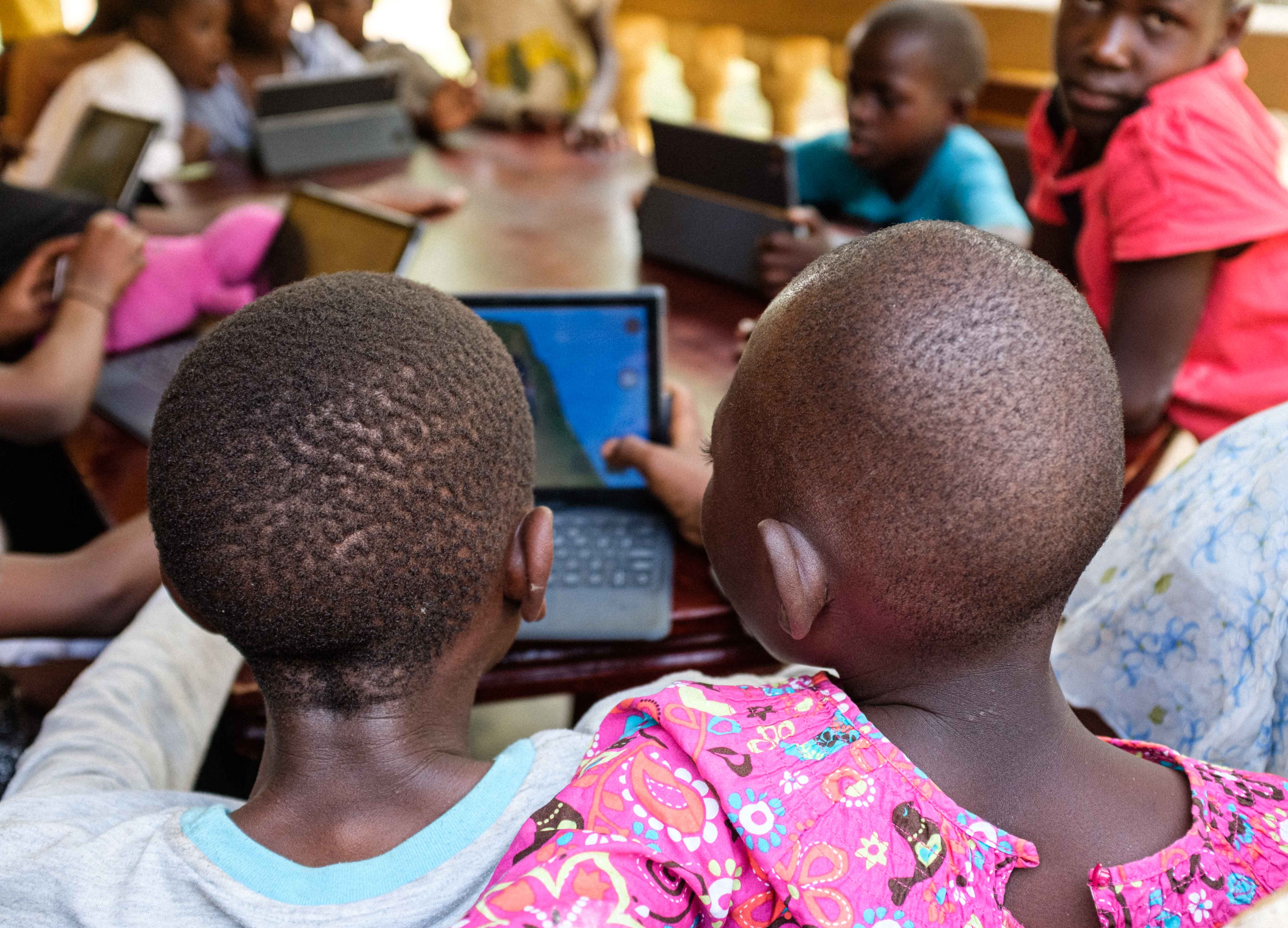
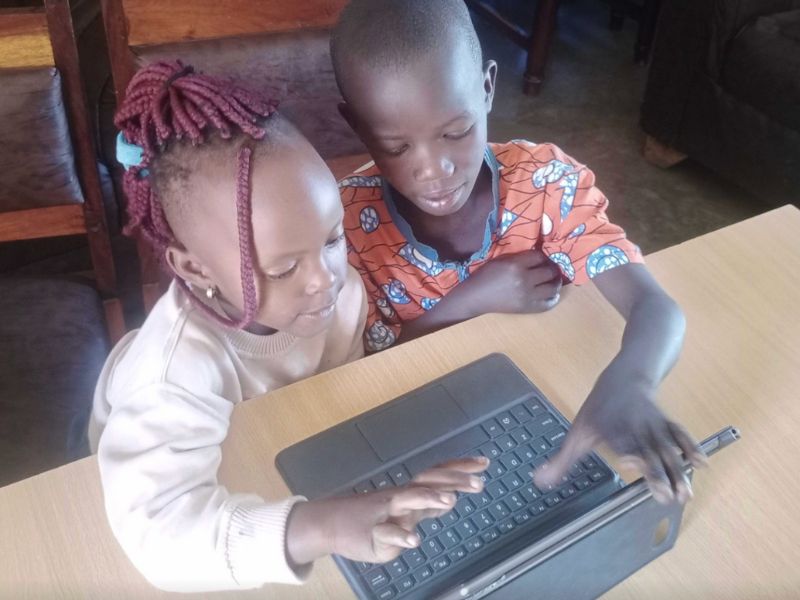
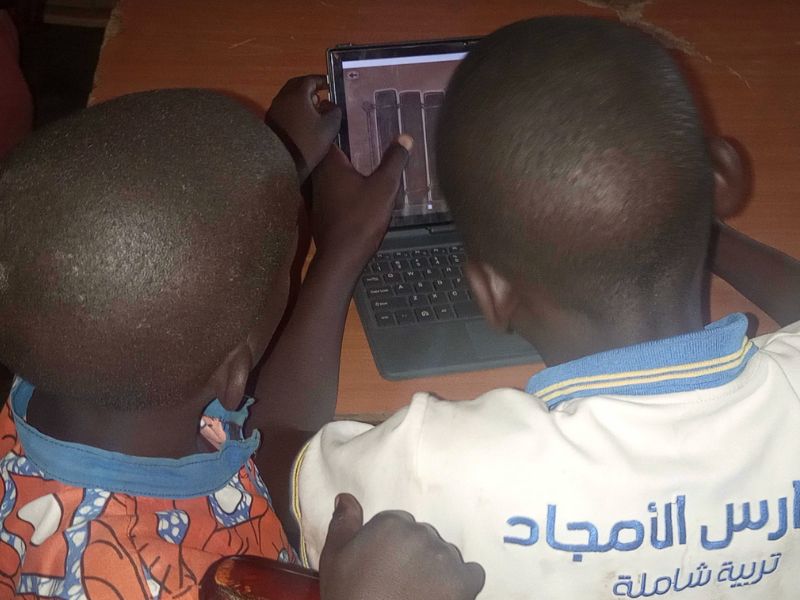
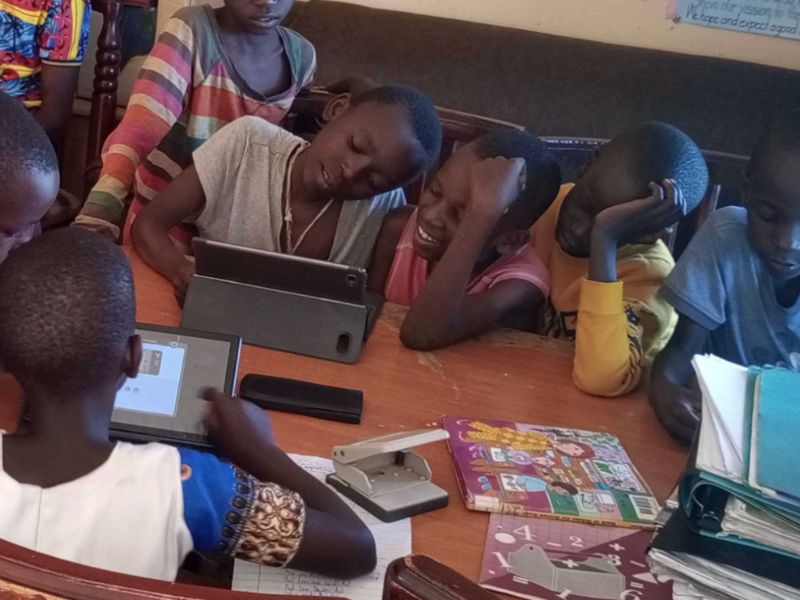
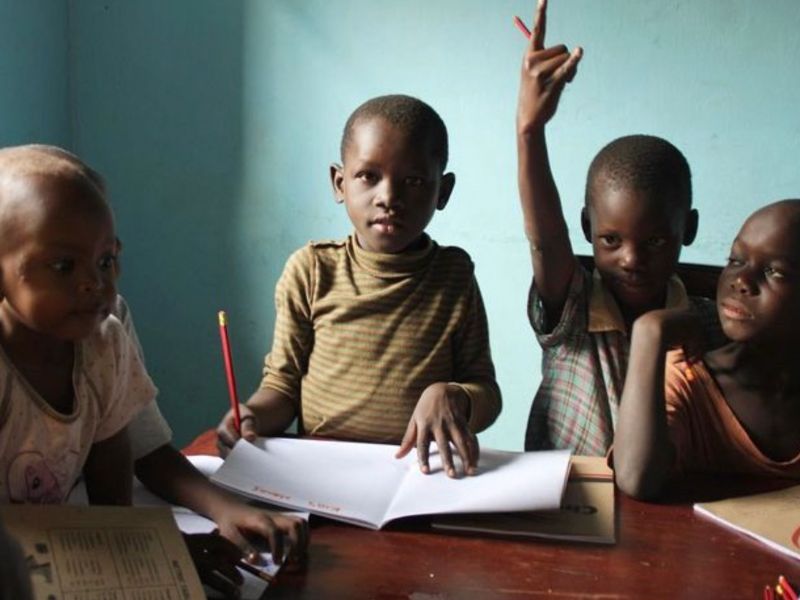
Current Education Intiatives
In November 2021, we established a partnership with Enuma, then a startup focused on providing early English literacy and math skills. Enuma offers Kitkit school tablets which are electronic tablets preloaded with English and math courses for a wide age range. Along with our mass purchase of tablets, Enuma employees from Tanzania provided training for our regional partners. Today, these tablets provide a source of alternative education for local children who cannot attend school.
Since October, RCG has been enhancing its tablet-based learning program to connect educators with 70 children in Bugiri. Through our first high school intern initiative and expanded international volunteer staff, we developed a comprehensive report to assess impact and guide future growth. Key findings highlighted challenges in tablet access, teacher training, and program monitoring. Drawing from global best practices, we identified strategies to improve digital learning, teacher support, and data-driven decision-making. With $1,060 raised through a Holiday Fundraiser, we’re addressing immediate needs like hiring a teacher and upgrading classrooms while exploring partnerships with organizations. Our goal is to create a sustainable, locally relevant online learning environment for Bugiri students.
The Ugandan National Planning Authority evaluation of Uganda’s universal primary education policy estimates that the government is spending ~1/3 (20,000 UGX instead of ~60,000 UGX) of what it should spend per student in public education. This ultimately results in hidden fees for seemingly free public schooling as well as low pay for the teachers and inadequate educational materials. Teachers therefore have to teach at multiple schools to make ends meet, and the implementation of practical subjects like agriculture, mechanics, physics and biology is simply impossible because there is inadequate funding. Therefore, we believe our enrolling in some of the finest private boarding schools in the country is the best way to maximize our scholars chances at enrolling in tertiary education.
Tuition and school-related expenses make up most of the capital resources needed to implement the Scholarship Program, as it can cost upwards of $1,300 annually to send a single student to a reputable school that meets our screening criteria (e.g., quality of faculty, classroom size, average graduation exam score).
While the cost of tuition restricts us from sending all RUN beneficiaries to private boarding schools, our Scholarship program also involves annual funding for scholastic materials for another 100+ students.
Past Programs
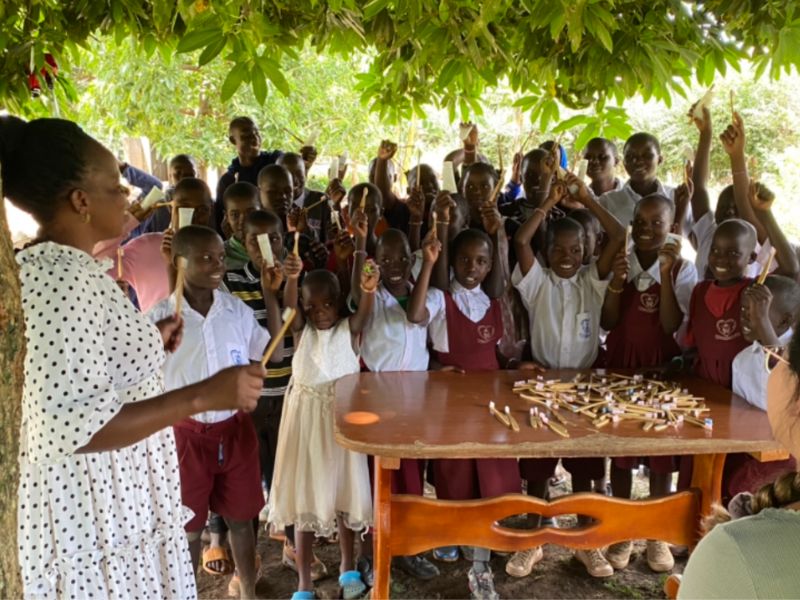
Dental Hygiene with Benco Family Foundation
Part of Benco Family Foundation’s mission is to improve dental health and quality of life around the world. RCG partnered with Benco to provide every child with a toothbrush and toothpaste to last a year. Thanks to our combined efforts, we raised awareness of preventative measures in dental hygiene within the community of Nankoma Village.
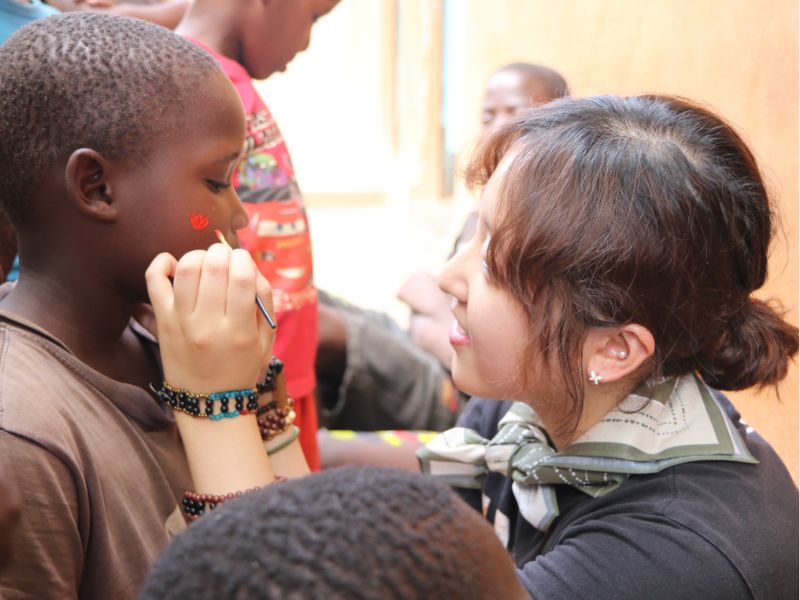
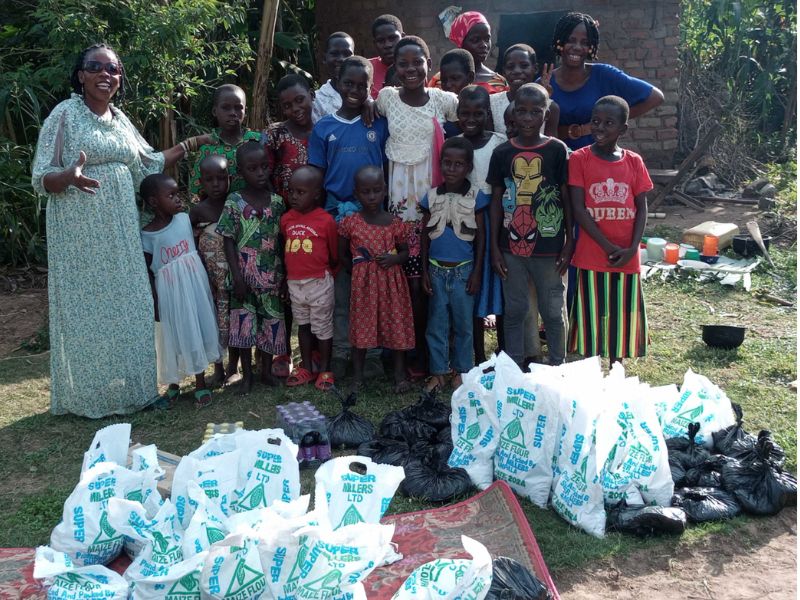
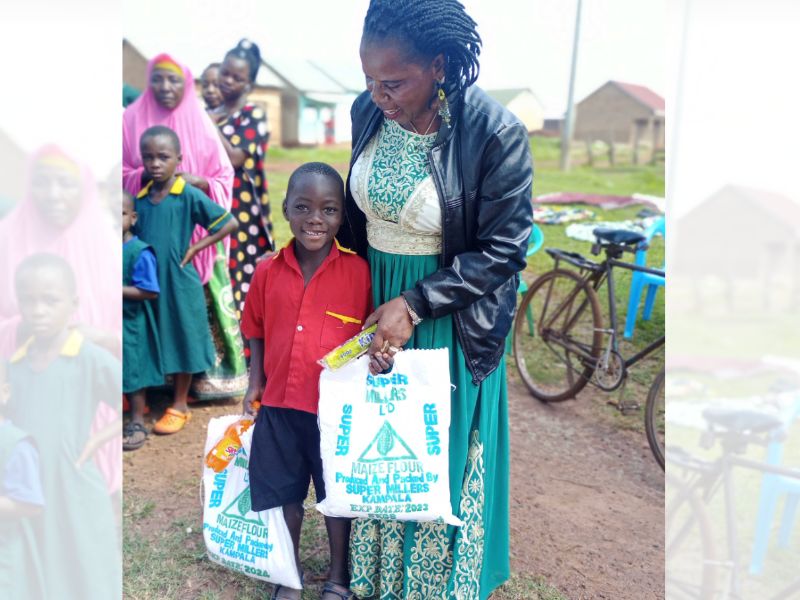
Christmas in Uganda
On December 25th, 2017, four of our Korean staff members celebrated Christmas with our staff and children in Nankoma. Along with dances, show and tell, painting exercises, readings, and debate, we played and studied with the children.
RCG staff members were also invited to a social event hosted by a Member of Parliament, had numerous meetings with district and community-level officials, and met with local business owners to discuss ways of building trust, cooperating, and making a real difference in the community.
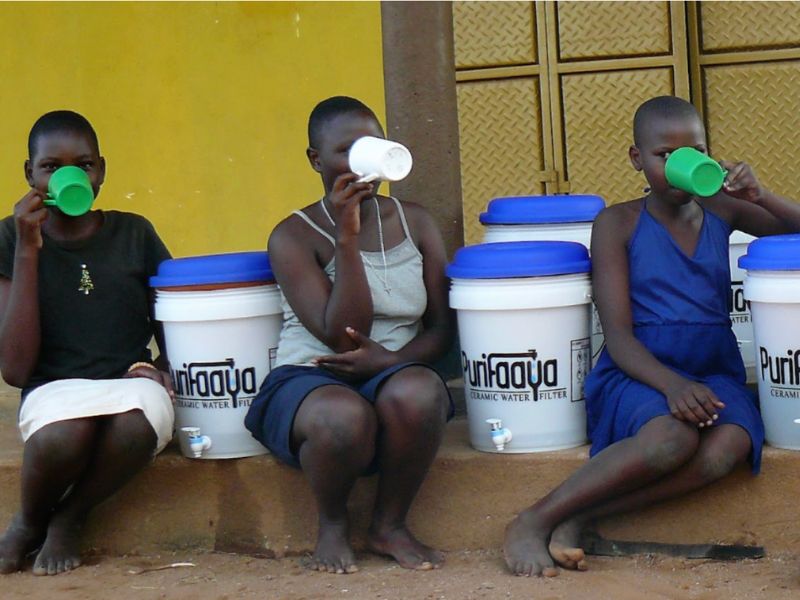
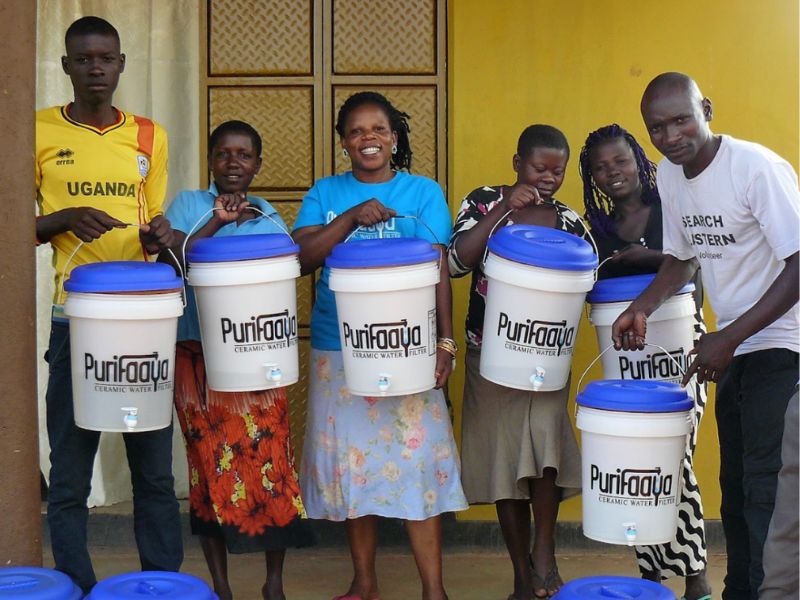
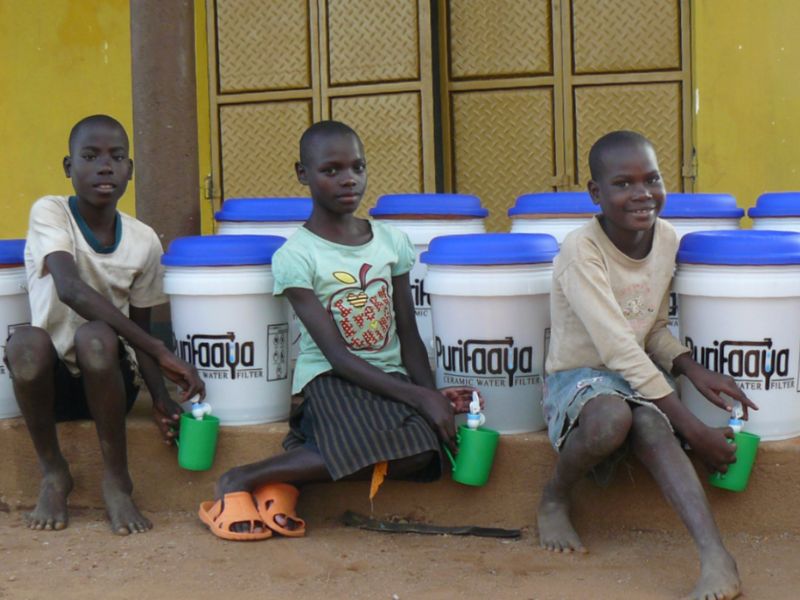
Clean Water & Self-sufficiency with SPOUTS
We partnered with SPOUTS, a student-founded enterprise that won the Harvard President’s Innovation Challenge in 2011, to provide affordable clean water options in the neighborhood. By targeting a population in Uganda that has the need, purchasing power, and mutual trust with our staff, we made clean water accessible by raising awareness of its importance, sales, and payment plans.
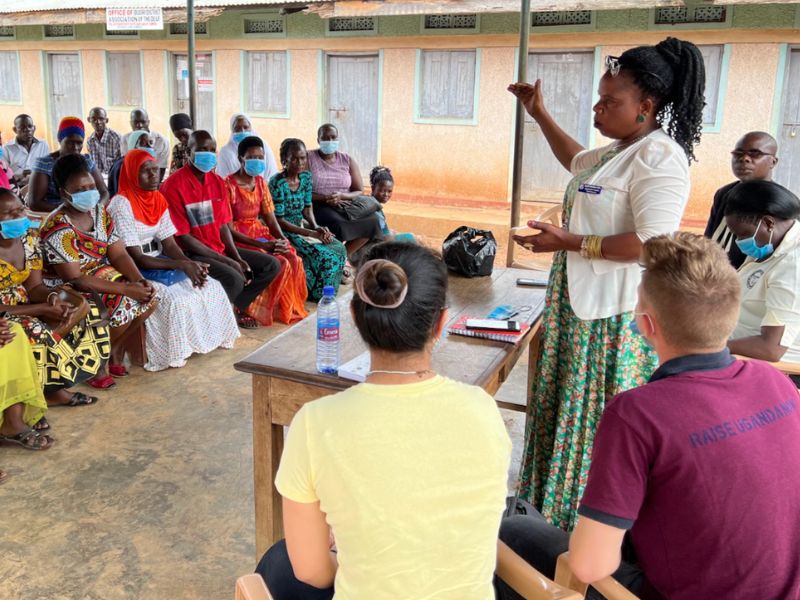
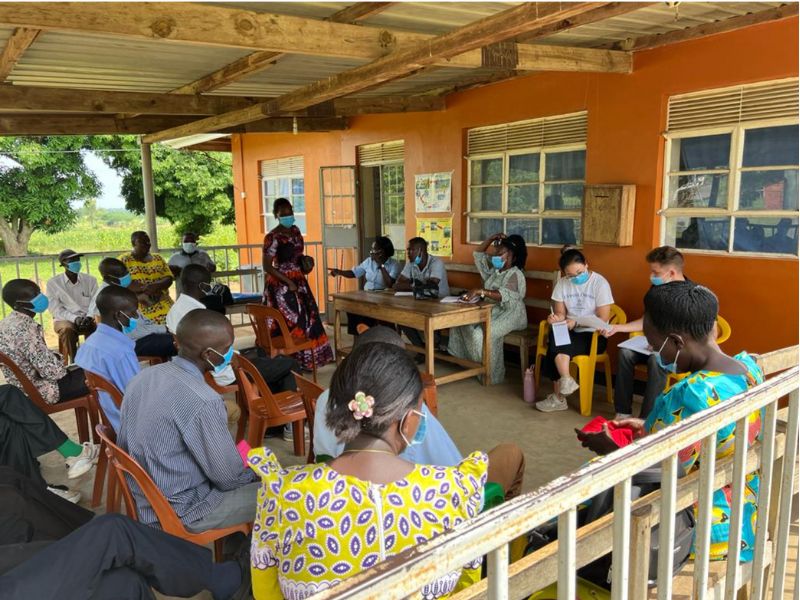
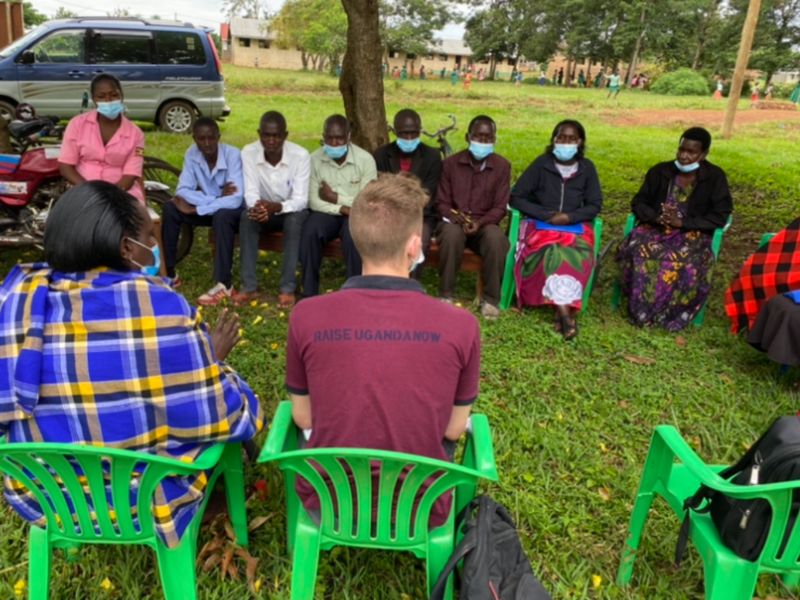
Cascade
Cascade is a methodology founded by a team of undergraduate students at Harvard College interested in service, education, health equity, and social entrepreneurship. Cascade seeks to identify and support the systems that provide residents of rural Uganda with a strong educational foundation to help reduce disparities in accessing proper healthcare and sanitation. In May, 2022, we visited Bugiri to interview Village Health Teams (VHTs) in 5 sub-counties in the district. Our findings are compiled in a report that we plan to use to advise our future health projects and advocate for collaboration with VHTs.
